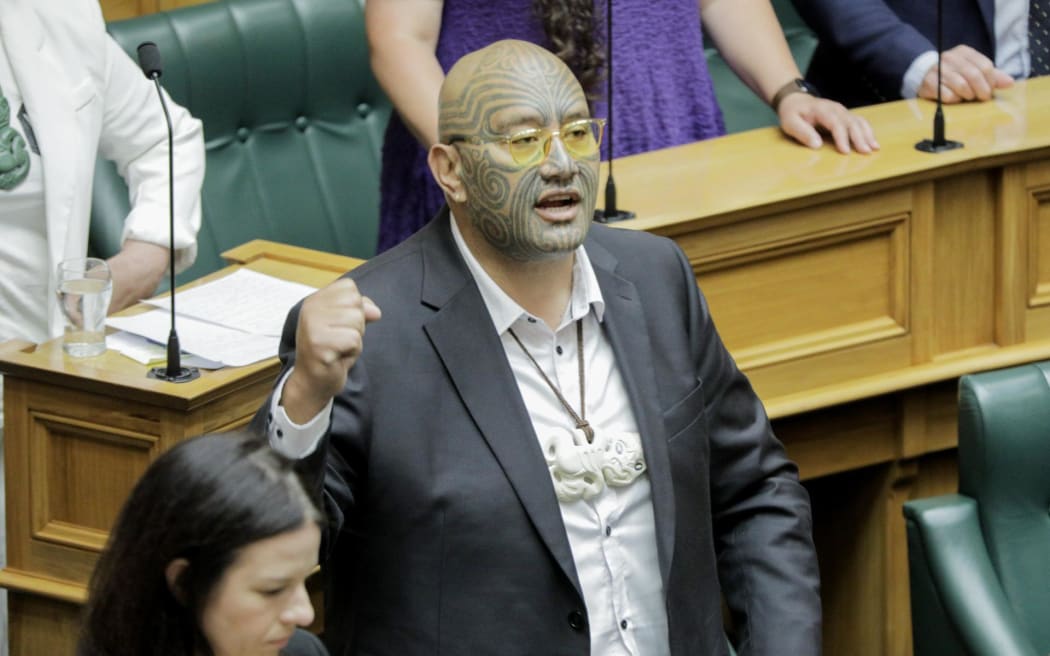 When U.S. President George W. Bush, on 7 September 2002, said that the IAEA had just come out with a “new report” concluding that Saddam Hussein was only six months away from having a nuclear weapon, and the IAEA three times denied it, the President’s allegation grew into, and became the basis for, America’s ‘justification’ to invade Iraq on 20 March 2003, while the IAEA’s denial was hidden by the ‘news’-media — censored-out by them all (except for only one tiny and unclear news-story that only one small news-medium published three weeks later and few people even noticed — and which news-report didn’t even so much as just mention that it had related to the U.S. President’s allegation, much less that it disproved that allegation: that America’s President had lied his country into — deceived his own public into supporting — that invasion).
When U.S. President George W. Bush, on 7 September 2002, said that the IAEA had just come out with a “new report” concluding that Saddam Hussein was only six months away from having a nuclear weapon, and the IAEA three times denied it, the President’s allegation grew into, and became the basis for, America’s ‘justification’ to invade Iraq on 20 March 2003, while the IAEA’s denial was hidden by the ‘news’-media — censored-out by them all (except for only one tiny and unclear news-story that only one small news-medium published three weeks later and few people even noticed — and which news-report didn’t even so much as just mention that it had related to the U.S. President’s allegation, much less that it disproved that allegation: that America’s President had lied his country into — deceived his own public into supporting — that invasion).
This is an example of censorship to require lies, and to prohibit truths. And that is what censorship is generally intended to do. An author can write or say truths, but if no one will publish it, what good is it? What good is such ‘freedom of the press’? What good was it? (The IAEA knew.) None, at all (except for the international corporations that profited from America’s takeover of Iraq, and that served them by publishing those clients’ propaganda as ‘news’, such as in “You scratch my back, I’ll scratch yours”).
I specialize in documenting such censorship to enforce lies and prohibit truths, but I find that the public isn’t much concerned about this problem; most people simply assume it doesn’t even exist, and that if any censorship does exist, it is to prohibit lies instead of truths (the exact opposite of what it really is). They are thus doubly deceived. On December 27th, Russia’s RT headlined “Every social media firm censors for US government”, documenting that claim with links to the sources, and noting that it pertains to at least Twitter, Google, Facebook, Microsoft, Reddit, and Pinterest, and that it’s controlled by collusion between those corporations and the Government in order to hide truths — including partisan political truths — so as to pump up the public’s support for current Governmental policies, to continue those policies by continuing those leaders in office. It’s essential to retaining the regime.
This censorship is so normal in America so that on 24 November 2016, the Washington Post headlined “Russian propaganda effort helped spread ‘fake news’ during election, experts say”, and it reported that a
group, called PropOrNot, a nonpartisan collection of researchers with foreign policy, military and technology backgrounds, planned to release its own findings Friday showing the startling reach and effectiveness of Russian propaganda campaigns. (Update: The report came out on Saturday).
The researchers used Internet analytics tools to trace the origins of particular tweets and mapped the connections among social-media accounts that consistently delivered synchronized messages. Identifying website codes sometimes revealed common ownership. In other cases, exact phrases or sentences were echoed by sites and social-media accounts in rapid succession, signaling membership in connected networks controlled by a single entity.
PropOrNot’s monitoring report, which was provided to The Washington Post in advance of its public release, identifies more than 200 websites as routine peddlers of Russian propaganda during the election season, with combined audiences of at least 15 million Americans. On Facebook, PropOrNot estimates that stories planted or promoted by the disinformation campaign were viewed more than 213 million times.
It wasn’t “nonpartisan,” and it was, instead, censorship to enforce lies — not to prohibit them — and that ‘news’paper was praising it by spreading its lies about itself (i.e., that the WP wasn’t itself one of the top spreaders of “fake ‘news’” — which, like all mainstream (and many non-mainstream) ‘news’-peddlers, it was and is). In fact: many of the “more than 200 websites as routine peddlers of Russian propaganda” were publishing more truths and less lies than such mainstream ‘news’-media as the WP itself was and does. But that’s an unpublishable truth, because it’s a truth that exposes themselves to be precisely what they condemn.
If you want to be censored-out from America’s mainstream — and from most of America’s non-mainstream — ‘news’ media, just prove that they are fraudulent; that’ll do it, every time.
There was no accountability for either Bush’s, or his ‘news’-media’s, lying America into invading and occupying Iraq — providing knowingly false ‘justifications’ for that (in order to do it ‘democratically’ — with support by the majority of voters). However, to expose, such lying, gets a journalist censored-out 100% (in this anything-but-democratic country).
On 5 February 2003, U.S. SecState Colin Powell addressed the U.N. Security Council urging its authorization to invade (which didn’t come). He said that Saddam’s Government was hiding crucial information, and “Some of the material is classified and related to Iraq’s nuclear program. Tell me, answer me, are the inspectors to search the house of every government official, every Baath Party member and every scientist in the country to find the truth, to get the information they need, to satisfy the demands of our council?” The next day, all major U.S. newspapers editorialized that, as the Washington Post headlined “Irrefutable”, saying that, “Whether Iraq is disarmed through the authority of the United Nations or whether the United States effectively assumes responsibility depends on how the Security Council responds.” In other words: this issue was to stand as a test not of the U.S., but of the U.N. And definitely not of the ‘news’-media, at all. On 22 March 2019, the WP’s “Fact Checker” columnist issued a 2,000+word retrospective, “The Iraq War and WMDs: An intelligence failure or White House spin?” which concluded “It’s too fuzzy for the Pinocchio Test [“True” vs. “False”], as it also falls in the realm of opinion [supposedly meaning statements that are neither true nor false but ONLY about what the person wants others to believe — and that statement about “opinion” is itself FALSE]”; and, so, he was alleging, both the “Bush administration” and its intelligence agencies had failed (even though both actually succeeded because they — with the assistance of the Washington Post and others — had deceived the public). His lengthy column 100% avoided any reference to the IAEA — whose Bush-alleged but non-existent “new report” had gotten the regime’s PR campaign to invade Iraq started. Nobody (certainly no U.S. ‘news’-medium) even noticed that the IAEA as the alleged source of the nuclear allegation had somehow mysteriously disappeared (much less wondered why it disappeared in the press, and from the Government). Colin Powell’s speech made no mention of the IAEA. There was constant hiding of the fact that America’s President had lied in order to start the allegation as having originated from the IAEA (the U.N.-authorized investigation-agency on nuclear matters — and Powell was addressing the U.N.). The media hid his lies, and their own lies, to back up the U.S. president’s lies. And (unlike on issues that are politically partisan in the U.S.) this was unanimous lying, by the U.S.-and-allied press.
I shall here cite my own personal experience to explain why I think that the public (which is so deceived as to be largely supportive of censorship) should be very much concerned about this (censorship), if they care at all about democracy. The incident in which the invasion of Iraq resulted from censorship is what had caused me, in 2002, to focus upon this problem, because it made clear to me that I was living under a dictatorship. I hadn’t previously been certain of this subsequently proven fact about America. So: that incident was a turning-point for me. A second such turning-point for me was the start in 2014 of the war in Ukraine:
Back in or around 2014, 43 international-news media were publishing my articles, and some of them were mainstream liberal media, some were mainstream conservative, and others were libertarian, but the vast majority were non-mainstream. When Barack Obama in February 2014 perpetrated a coup in Ukraine that installed a rabidly anti-Russian government there on Russia’s border and that was instead ‘reported’ as-if it had been a ‘democratic revolution’, which coup-imposed regime perpetrated a massacre against its pro-Russian protestors inside the Trade Unions Building in Odessa on 2 May 2014 (see especially the charred bodies of its victims at 1:50:00- in that video), I started writing about Ukraine; and, then, those 43 international-news sites gradually whittled themselves down to only 7; and, yet, none of them ever alleged that anything in any of my articles was false and asked me to prove it true, but they were instead getting pressure from Google, and from the FBI, and from other Establishment U.S. entities, and were afraid of being forced out of business (which many of them ultimately were) by them. The personal narrative that will now be provided here is about the latest of these cases, which threatens the site Modern Diplomacy, which had been an excellent international-affairs news site and included writers from all across the international-affairs news spectrum, for and against every Government’s policies, and from practically every angle. I had long been expecting MD (because of its impartiality) to receive a warning from the U.S. regime, and this finally happened late in December 2022, when the site’s founder, D., sent me this notice:
Dear Eric, do you know who are these guys? https://www.newsguardtech.com/ratings/rating-process-criteria/
They sent me an email with allegations mentioning your articles as false claims and MD as a pro-kremlin propaganda website due to these.
Do they have any influence on Search engines and social media? Will we have any problems at all?
Thanks
D.
I replied with an email
Subject: Since you are a co-founder,
Date: Dec 24, 2022 at 9:20 AM
To: moc.hcetdraugswennull@llirb.nevets
Cc: [D.]
I ask you please to explain to me, and to the webmaster at moderndiplomacy.eu, why your organization — well, here is what he sent me about what your organization did:
[I pasted in D.’s message to me.]
As you can see there, he is afraid (that’s a weak version of terrorized) that your organization will downgrade his site because of his site’s posting some of my articles.
It seems to me that there are two reasonable types of responses that you can give him and me:
Either you will cite falsehoods in one or more of my articles at his site
https://moderndiplomacy.eu/author/ericzuesse/
(but, of course, you could also do that regarding any edition of the New York Times or Washington Post; so, why would that be a reason?), or else:
You could search to find such falsehoods, find none, ask your employee why he or she is terrorizing that webmaster and (essentially) indirectly threatening me; and, if that employee fails to provide a reasonable and entirely true answer, which justifies what he or she has done, fire that person and inform the rest of your staff that you have done so and explain to all of them WHY you fired the employee, so that they all can then know to STOP DOING THIS!!!
Sincerely,
Eric Zuesse
Brill didn’t respond. So, I sent to D.:
I take my not having received a reply from either Steven Brill or you to be an ominous sign, because, suddenly, none of my recent articles has been posted by your site. Would you please explain? (If you are cancelling me as an author, I shall remove your site from my submissions-list.) After all, you said “They sent me an email with allegations mentioning your articles as false claims and MD as a pro-kremlin propaganda website due to these.” Did they state what those “false claims” were? Did you ask them? I very much doubt that they were able to find anything in any of my articles that is false. No one has ever before, to my knowledge, alleged any assertion in any of my articles to be false. I don’t ever make a claim that is false. I am EXCEEDINGLY careful. And any assertion in any of my articles that I think some readers MIGHT find questionable I provide a link to its documentation. So, I would distrust that allegation from Brill’s organization and consider it to be likely a lie from them in order to censor out from the news-media information that the U.S. regime wishes the public not to know. Would you not want to know whether that allegation from them was merely an excuse to censor out from your site information that they don’t want the public to know?
D. responded:
Dear Eric,
Sorry for the late reply. Thank you for your efforts in contacting newsguard, although I was surprised to see that you used my message I sent you in your contact email without my consent. Now they know I took it seriously. Anyway, I decided to stop publishing your articles — at least for a while and see how it goes. Part of my decision was of course the threats (not only from them) but also the fact that you are spreading them to a lot of websites and that google considers it as “scraped content”. I will try to stay in exclusive content although I appreciate your work and your courage.
I worked really hard these 10 years for MD and still can’t monetize it to support the expenses and me of course. Also I am tired and I am thinking about the possibility to find a buyer and stand back. Just keep it in mind, in case you find someone interested in it.
Of course we can stay in touch and keep sending me your articles — at least to have the opportunity to read them.
Below, you will find newsguard allegations concerning your articles. Please don’t use it to reply to them — we both know that there is no use. Instead, maybe you can write a new piece debunking them.
Kind Regards
D.
Here is what he had received from News Guard, and which I shall here debunk [between brackets]:
We found that Modern Diplomacy articles often link to sites rated as unreliable by NewsGuard for promoting false information, such as OrientalReview.org, pro-Kremlin site TheDuran.com, and en.interaffairs.ru <http://en.interaffairs.ru> , owned by the Russian Foreign Ministry. The site has also republished articles from sites such as The Gray Zone, rated unfavorably by NewsGuard for repeatedly publishing false claims about the Russia-Ukraine war and Syrian chemical attacks. Could you comment on why Modern Diplomacy republishes or links to sites which consistently promote false claims?
[Rating allegations as “true” or as “false” ON THE BASIS OF the identity of the SITE instead of on the basis of the specific allegation in the specific article (or video) is a standard method of deception of the public, which censors employ to distract and manipulate individuals (readers, etc.) by appealing to their existing prejudices such as (for an American conservative or Republican) “Don’t trust the N.Y. Times” or (for an American liberal or Democrat) “Don’t trust the N.Y. Post” (or, for both, “Russia is bad and wrong, and America is good and right”). It is appealing to prejudices and emotions, instead of to facts and evidence — it is NOT appealing to actual truth and falsity. It is a method of deception.]
We also found that ModernDiplomacy.eu has repeatedly published false and misleading claims about the Russia-Ukraine war.
For example, a June 2022 article titled “Have Europeans been profoundly deceived?,” claims to provide evidence that “A coup occurred in Ukraine during February 2014 under the cover of pro-EU demonstrations that the U.S. Government had been organizing ever since at least June 2011.”
[The word “coup” in that article was linked to this video, every detail of which I have carefully checked and verified to include ONLY evidence that is authentic — and no one has contested any of the evidence in it. The first item of evidence that is referred-to in this video is at 0:35, which item is the audio of a private phone-conversation between two top EU officials in which one, who was in Kiev while the coup was occurring, reported to his boss, who wanted to know whether it was a revolution or instead a coup, and he reported to her that it was a coup, and described to her the evidence, which convinced her. My article later says “Here is that phone-conversation, and here is its transcript along with explanations (to enable understanding of what he was telling her, and of what her response to it indicated — that though it was a disappointment to her, she wouldn’t let the fact that it had been a coup affect EU policies).” This news-reporting is of real evidence, not distractions, not any appeal to the reader’s (and listener’s) prejudices, either. But Mr. Brill’s employee apparently didn’t check my article’s sources (gave no indication of having clicked onto any of my links), because he or she was judging on the basis purely of that person’s own prejudices — NOT upon the basis of any evidence. Then, at 3:35 in that video, is audio of another private phone-conversation, which was of Obama’s planner of the coup, Victoria Nuland, telling his Ambassador in Ukraine, Geoffrey Pyatt, whom to get appointed to run the stooge-regime after the coup will be over, “Yats” Yatsenyuk, which then was done. My article also says “Here is that phone-conversation, and here is its transcript along with explanations (to enable understanding of whom she was referring to in it, and why).” The reference to “June 2011” had appeared in this passage from a prior article of mine, where that two-word phrase linked to Julian Assange’s personal account of the matter — the Obama Administration’s early planning-stage for the coup in Ukraine — that explains how those “pro-EU demonstrations” had been engineered by Obama’s agents. So: everything in that paragraph by Brill’s employee was fully documented in my links — which that person didn’t care to check.]
However, there is no evidence that the 2014 Maidan revolution in Ukraine that led to the ouster of then-president Viktor Yanukovych was a coup orchestrated by the United States. … Angry protesters demanded Yanukovych’s immediate resignation, and hundreds of police officers guarding government buildings abandoned their posts. Yanukovych fled the same day the agreement was signed, and protesters took control of several government buildings the next day. The Ukrainian parliament then voted 328-0 to remove Yanukovych from office and scheduled early presidential elections the following May, the BBC reported. These events, often collectively referred to as the “Maidan revolution,” were extensively covered by international media organizations with correspondents in Ukraine, including the BBC, the Associated Press, and The New York Times.
Could you please comment on why Modern Diplomacy repeated this false claim, despite evidence to the contrary?
A March 2022 article titled “Who actually CAUSED this war in Ukraine?” states that “Russia had done everything it could to avoid needing to invade Ukraine in order to disempower the nazis who have been running the country ever since Obama’s 2014 coup placed it into the hands of rabidly anti-Russian racist-fascists there.”
In fact, Nazis are not running Ukraine. … Svoboda won 2.2 percent of the vote. Svoboda currently holds one parliamentary seat.
In February 2022, U.S. news site the Jewish Journal published a statement signed by 300 scholars of the Holocaust, Nazism and World War II, which said that “the equation of the Ukrainian state with the Nazi regime” is “factually wrong, morally repugnant and deeply offensive to the memory of millions of victims of Nazism and those who courageously fought against it.” Additionally, Ukrainian President Volodymyr Zelensky, who is Jewish, addressed the Russian public in a Feb. 24, 2022, speech, saying that these claims do not reflect the “real” Ukraine. “You are told we are Nazis. But could people who lost more than 8 million lives in the battle against Nazism support Nazism?”
Could you please comment on why Modern Diplomacy repeated this false claim [that “the nazis who have been running the country ever since Obama’s 2014 coup placed it into the hands of rabidly anti-Russian racist-fascists there”], despite evidence to the contrary?
[Yet again, Mr. Brill’s employee simply ignores my evidence — fails even to click onto my links whenever he disagrees with an allegation that has a link. Here was my published assertion, as it was published: “Russia had done everything it could to avoid needing to invade Ukraine in order to disempower the nazis who have been running the country ever since Obama’s 2014 coup placed it into the hands of rabidly anti-Russian racist-fascists there.” The evidence is right there, just a click away, but Mr. Brill’s employee again wasn’t interested in seeing the evidence. (Nor is Brill himself.)]
An April 2022 article titled “Authentic War-Reporting From Ukraine,” promotes a video report by pro-Kremlin journalist, Patrick Lancaster, filmed in the Eastern Donbas region of Ukraine. The article asserts that Ukraine was “constantly shelling into that region in order to kill and/or compell to flee anybody who lived in that region […] It was an ethnic cleansing in order to get rid of enough of those residents so that, if ever that area would again become integrated into Ukraine and its remaining residents would therefore be voting again in Ukrainian national elections, the U.S.-installed nazi Ukrainian regime will ‘democratically’ be able to continue to rule in Ukraine.” (The article also repeats the claim that the 2014 revolution was a US-backed coup, and makes the unverified claim that “The CIA has instructed all of Ukraine’s nazis (or racist-fascists) to suppress their anti-Semitism and White Supremacy until after Ukraine has become admitted into NATO.”)
The claim that Ukraine conducted an “ethnic cleansing” in the Donbas echoes a falsehood propagated by the Russian government for years. There is no evidence supporting the claim that genocide occurred in Ukraine’s eastern region of Donbas. The International Criminal Court, the Office of the UN High Commissioner for Human Rights, and the Organization for Security and Co-operation in Europe have all said they have found no evidence of genocide in Donbas. The U.S. mission to the Organization for Security and Co-operation in Europe called the genocide claim a “reprehensible falsehood” in a Feb. 16, 2022 post on its official Twitter account. It said that the mission “has complete access to the government-controlled areas of Ukraine and HAS NEVER reported anything remotely resembling Russia’s claims.”
Could you please comment on why Modern Diplomacy repeated this false claim, despite evidence to the contrary?
[Yet again, Mr. Brill’s employee relies upon people’s opinions — but ONLY ones who agree with his — instead of any evidence at all. Here, on behalf of myself, and of Modern Diplomacy, and of Patrick Lancaster (INSTEAD OF on behalf of Lockheed Martin and the other U.S.-and-allied international-corporate entities that are profiting from this war), are nine news-reports linking to actual evidence which disproves those opinions:
“Mortar shelling in Kramatorsk. Nazis attacking city district.” 18 May 2014
“Ukraine crisis: ‘Those fascists killed this girl and they will be in hell’” 5 May 2014
“Ukraine Crisis: Kiev’s Slovyansk ‘Anti-Terrorist Operation’ Kills 300 Pro-Russian Separatists” 4 June 2014
“Luhansk. After Air Strike. Part 4 (of 6)” 2 June 2014
“AP’s Matt Lee challenges White House’s lies on Ukraine” 7 July 2014
“Obama Definitely Caused the Malaysian Airliner to Be Downed” 18 July 2014
“How Our People Do Their Extermination-Jobs In Ukraine” 23 October 2014
“What Obama’s Ukrainian Stooges Did” 10 October 2014
“Brookings Wants More Villages Firebombed in Ukraine’s ‘Anti Terrorist Operation’” 3 February 2015]
My final reply to D.’s final rejection of my position was:
As regards myself, I am with Chris Hedges (who quit the N.Y. Times over this) and with Consortium News (which is standing up against the same pressure that you are caving to), in order to have any hope that the future might possibly be better than the present.
At the same time when News Guard was threatening Modern Diplomacy and perhaps forcing that site to reject all future submissions from me, the news-site, Consortium News, was likewise being threatened by Brill’s shills. On December 29th, Consortium News headlined “On the Influence of Neo-Nazism in Ukraine: A short history of neo-Nazism in Ukraine in response to NewsGuard’s charge that Consortium News published false content about its extent”. That, too, is an excellent example of censors killing truths and leaving only lies. However, mega-corporate America has a number of such ‘fact-checking’ truth-destroying organizations: New Guard is only one of them.
These self-styled truth-policemen of the Web represent the regime, and came into being after the Web itself did. The Web enabled — for the first time in history — articles to be published and read that link to their sources, and this opened up a new possibility and reality, in which the online readers could actually evaluate ON THEIR OWN (by clicking onto such links) the evidence. That upset the billionaires’ applecarts of ‘authoritative opinion’ (which they have hired) so that authoritarianism (which they control) could become replaced by facts (which they can’t).
The least reliable means of forming or even of changing one’s opinions are means such as ink-on-paper allegations (newspapers, magazines, etc.) that cannot even POSSIBLY provide immediate direct online links to the items of evidence; and the MOST reliable means are online articles and books (such as my new one, AMERICA’S EMPIRE OF EVIL, whose ebook versions do document allegations by means of such online links — it’s the first-ever book to do so) which constantly bring directly to one’s computer or other Web-online device the items of evidence whenever the reader has any doubt about a given allegation’s veracity or not. That way the individual can form one’s opinion on the basis only of the evidence.
Anyone whose opinions are based upon the opinions of other people who believe as that person does, instead of on the basis of purely the facts of the matter and of ONE’S OWN investigations seeking out evidence both for and evidence against any alleged fact, will simply believe the myths that one already believes, and will only become more and more convinced of those falsehoods, as one grows older.
The function of censorship is to prohibit spreading truths. It poisons democracy, to death. Censors kill democracies. That’s what they are being paid to do. And they do it.
The post
Censorship Prohibits Spreading Truths and Demands Spreading Lies first appeared on
Dissident Voice.
This post was originally published on Dissident Voice.
Photo credit: Economic Club of New York




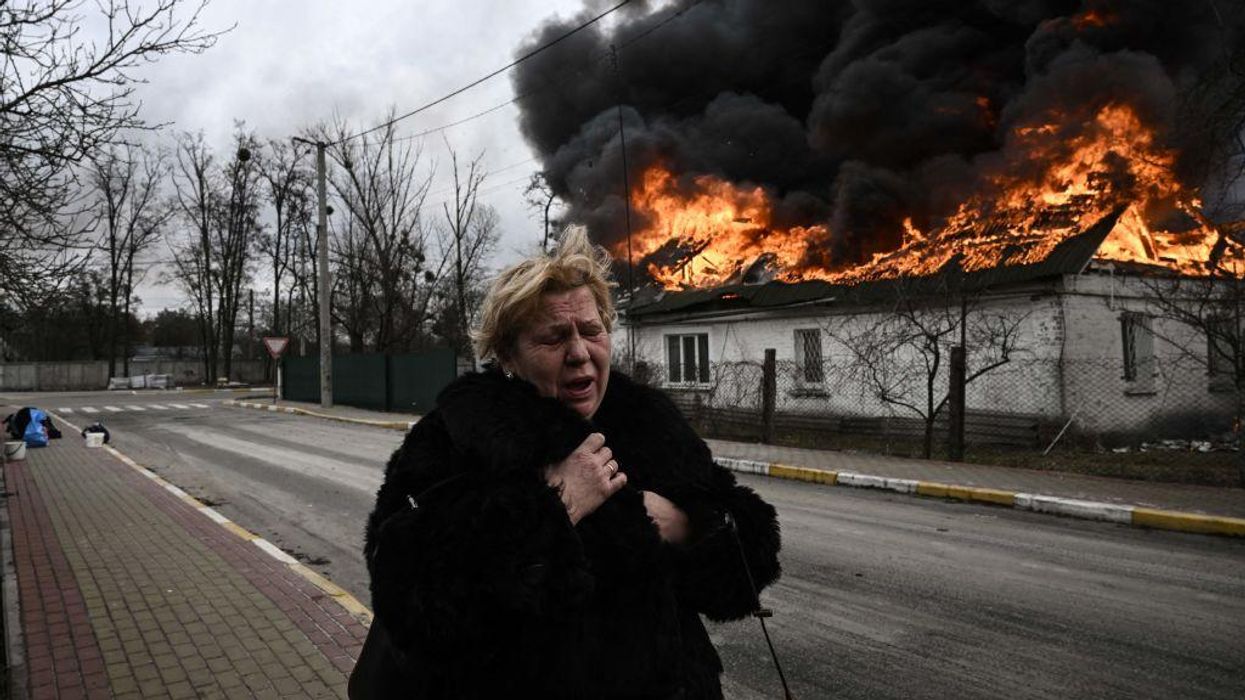
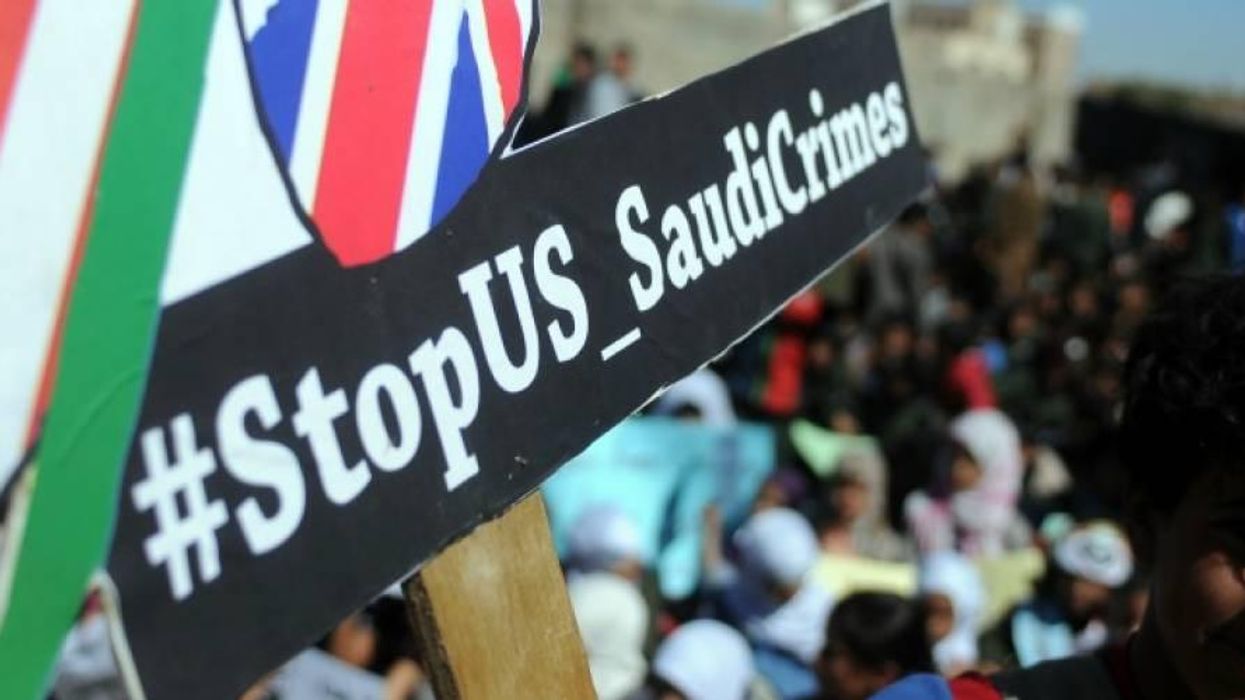





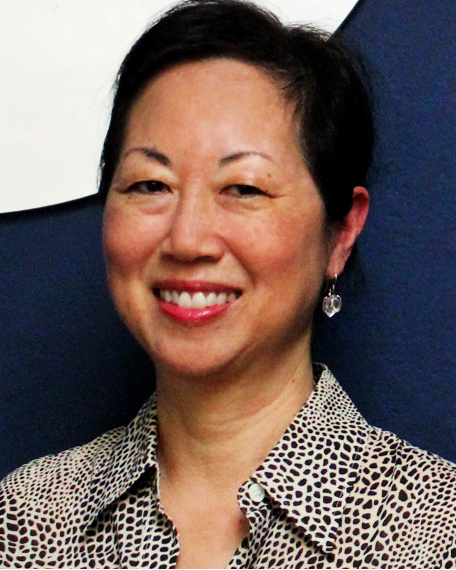


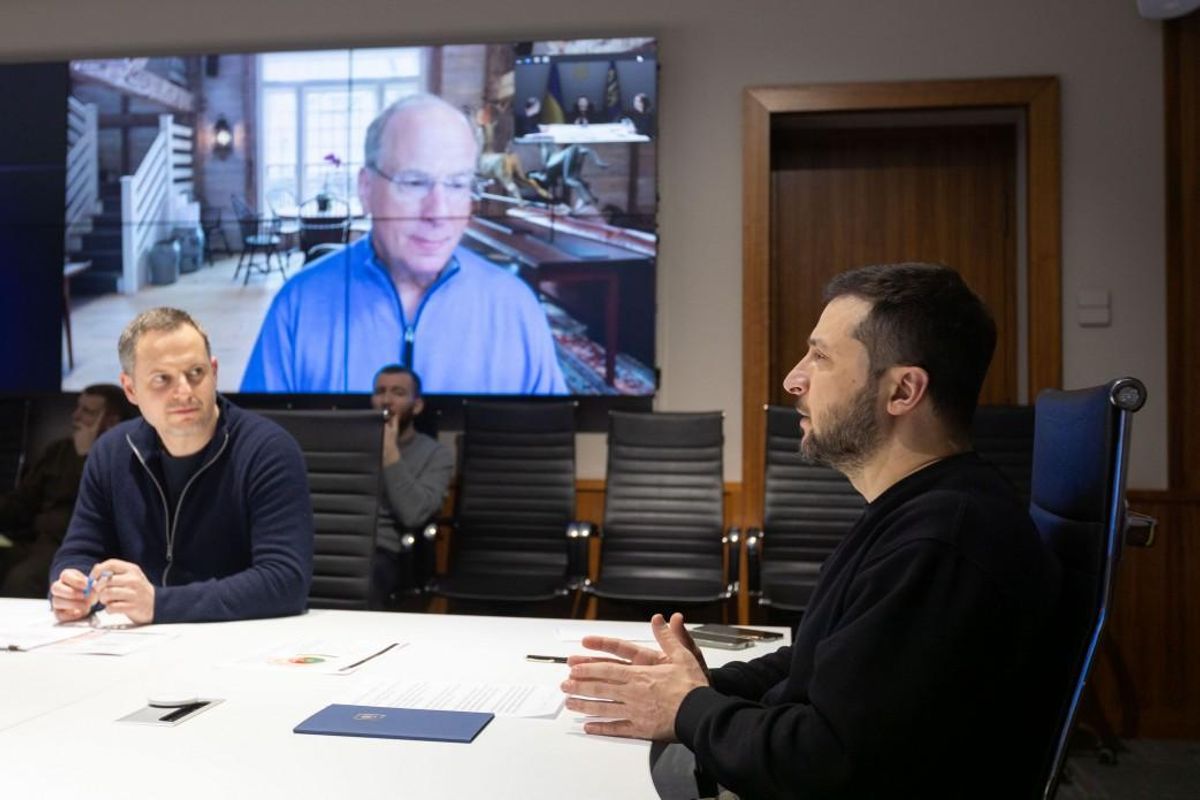

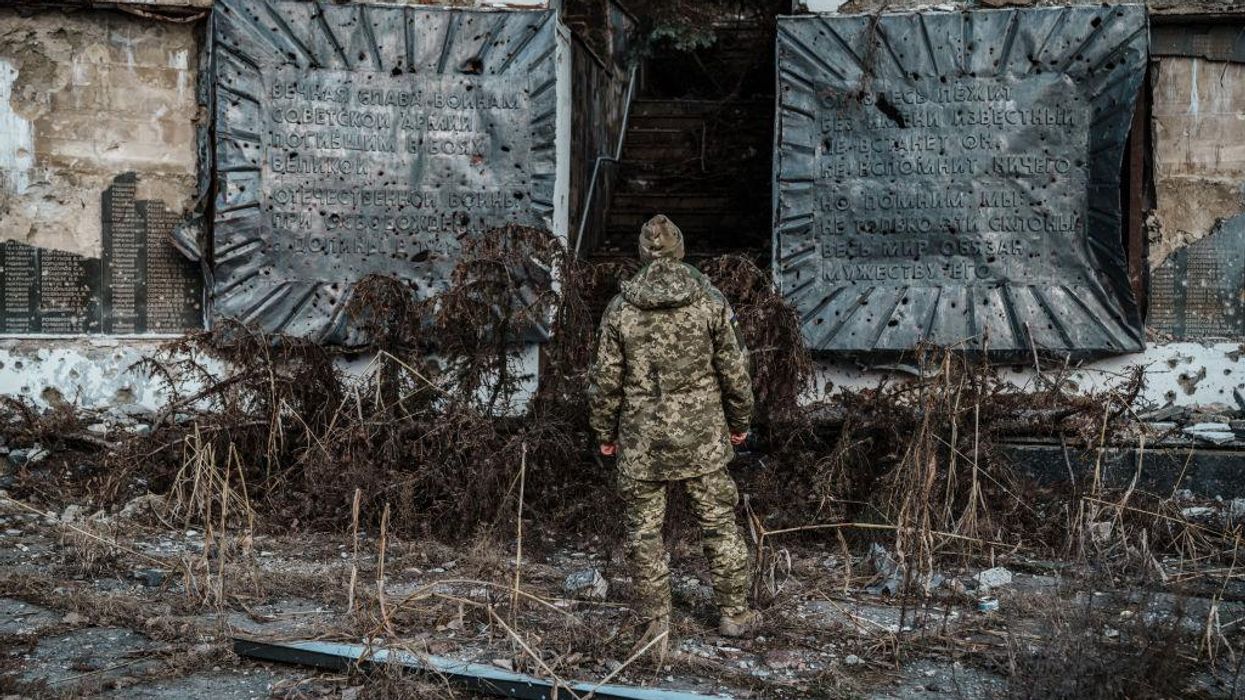
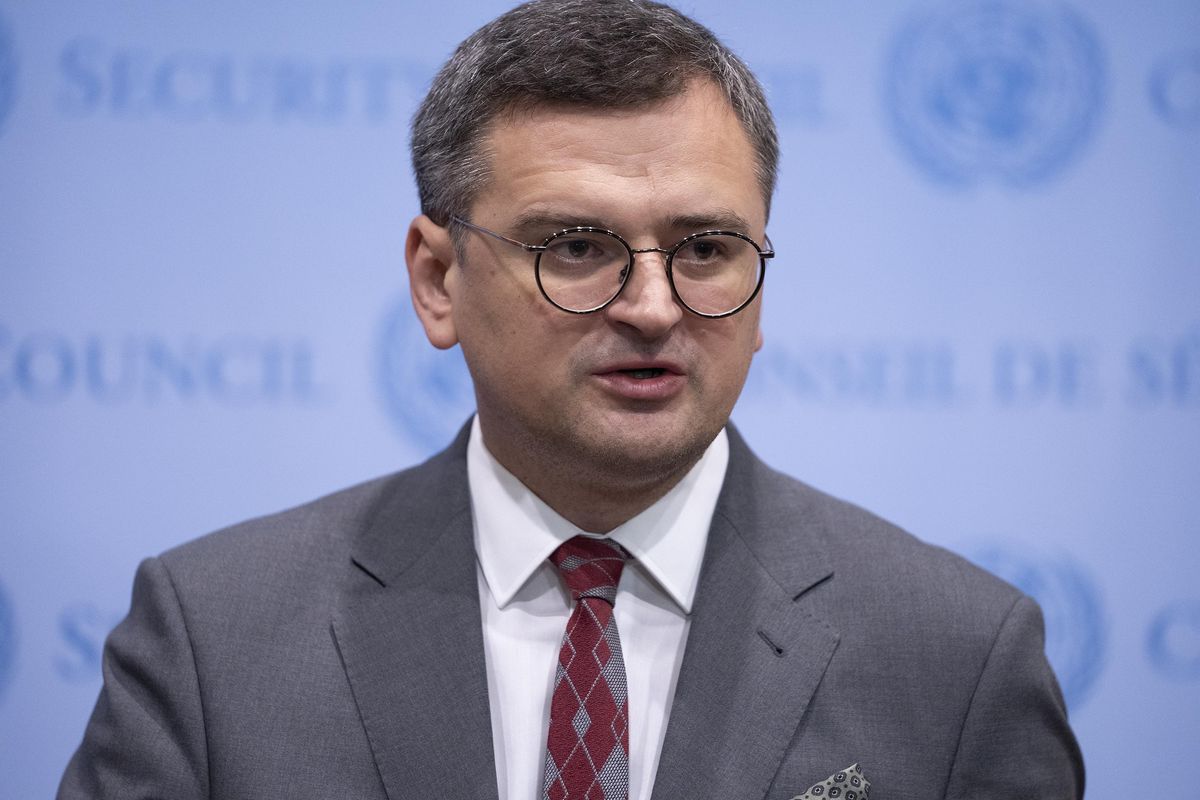










![How the West Brought War to Ukraine: Understanding How U.S. and NATO Policies Led to Crisis, War, and the Risk of Nuclear Catastrophe by [Benjamin Abelow]](https://i0.wp.com/covertactionmagazine.com/wp-content/uploads/2022/12/how-the-west-brought-war-to-ukraine-understanding.jpeg?resize=159%2C244&ssl=1)




